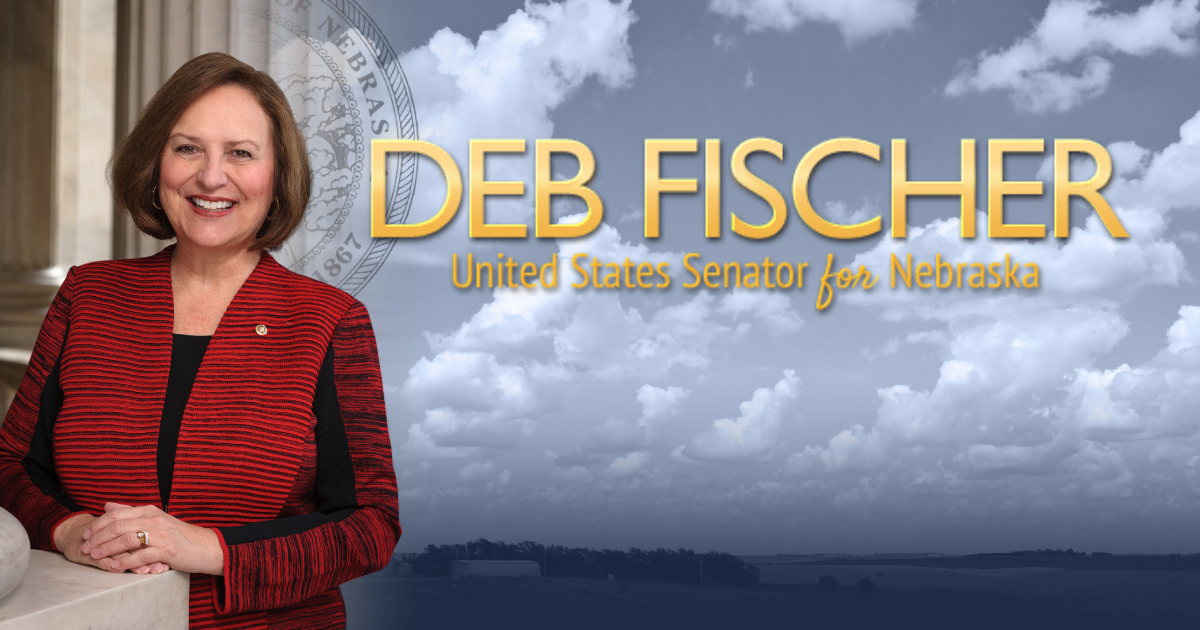Source: United States Senator for Nebraska Deb Fischer
WASHINGTON, D.C. – U.S. Senator Deb Fischer (R-Neb.), a member of the Senate Commerce Committee, highlighted the need to sustain broadband access to rural areas through the FCC’s longstanding Universal Service Fund at a hearing last week.
Senator Fischer also discussed the FCC’s forthcoming Broadband Deployment Locations Map that she authored as part of the Bipartisan Infrastructure Law. Set to launch this week, this accountability tool will provide a clear overview of where the government awards funds for broadband deployment projects – improving interagency coordination to reach unserved locations.
Click the image above to watch video of Sen. Fischer’s questioning
Click here for audio
Following is a transcript of Senator Fischer’s questioning:
Senator Fischer: At a high level, I want to start by touching on a measure that I passed in the Infrastructure Law. It would create a unified mapping tool for broadband funding, known formally as the Broadband Deployment Locations Map. The purpose of this new map is to combine data and identify where each federal agency awards funds for broadband deployment projects. And that includes the FCC, USDA, NTIA, Treasury, and a lot of other agencies out there. I am eagerly awaiting the FCC’s launch of this comprehensive inter-agency map and the deadline for that is next week. Mr. Lyons, given that so many agencies have funding programs for broadband build out, do you agree that this map will be a critical tool to minimize wasteful spending between different agency programs?
Professor Lyons: Yeah, I think at 10,000-foot level, it’s absolutely right. One of the biggest difficulties we’ve had in creating a comprehensive broadband deployment mechanism nationwide is a lack of adequate mapping. I think everybody’s been on board with the idea of creating good maps. It’s just that the challenge is how to do it. And so, I applaud any efforts that would advance the ball on that topic.
Senator Fischer: Thank you. Ms. Kronenberg, you mentioned the tens of billions of dollars that have been appropriated for broadband deployment through the CARES Act, American Rescue Plan Act, and the Infrastructure Law. Do you believe inter-agency coordination through the Deployment Locations Map would help ensure that all of this taxpayer funding is maximized, so that we are extending networks to as many households as possible?
Ms. Kronenberg: Yes, so much, and thank you for your leadership on this issue. We think it is critical for us to be able to evaluate the areas that are getting the funding, who is getting it, and which locations still need service. We have one more recommendation, and that is it would be great to have this new map also overlay with the National Broadband Map that the Commission has that shows the unserved and underserved locations. I know they’re working hard to meet the deadline next week. And, as soon as they’re done, and they have the maps ready to go for the June 30th, we’d love to see them go another step further so that we can see an overlay of the programs that are being funded with the unserved and underserved map. Thank you.
Senator Fischer: That is a great idea. My focus has been and the focus of the law is that unserved areas need to be prioritized. And so, it is extremely important that we have that information, that companies have that information as well. Mr. Law, it is so good to see you again. Do you think that having this centralized map up and running on time also would prevent the risk that your networks could be overbuilt by other agencies’ broadband programs?
Mr. Law: Thank you, Senator Fischer. I agree 100%. I think that type of coordination is absolutely vital as we move forward. Golden West, for example, in our activities in South Dakota, we have plans that we are working on for ’24, ’25, ’26 that are all part of our construction plans that we would be able to identify in that situation to properly flag that, “hey, we are a federal universal service support recipient. Here are our network, either as it exists today or what it will be this year, the end of next year,” and prevent duplicity and really needless spending so that we can focus first – all programs can focus first – on the most important item which I believe to be unserved locations.
Senator Fischer: Totally agree with you, totally agree. And as you know, the Universal Service Fund makes valuable investments in networks in rural high-cost areas. Otherwise, it just wouldn’t be commercially viable to serve those. I know that you mentioned the successes of ACAM and CAF Broadband Loop Support in sustaining reliable broadband in deeply rural areas, such as farms, ranches, homes, businesses, that are found all across America. In terms of the proposed rulemaking pending before the FCC to extend support for these two high costs funding mechanisms, could you explain how it would help preserve the Universal Service Fund investments into the future?
Mr. Law: Thank you. Yes, I think a couple of things. I think it would both, I’ll say reset, for those companies the necessary speed requirements to bring them more up to date, both in alignment with other programs, as well as you know, based on customer demands from when those CAF BLS and ACAM programs began in 2018. The other – as you touched on – the sustainability in terms of the networks that are built and designed utilizing those funds. I think we have a laudable track record over the last 20 years. And I’m confident small, rural community providers, including Golden West, those in Nebraska, have a great track record of showing that those networks will stand the test of time.
Senator Fischer: Thank you. Thank you very much. Thank you, Mr. Chairman.
